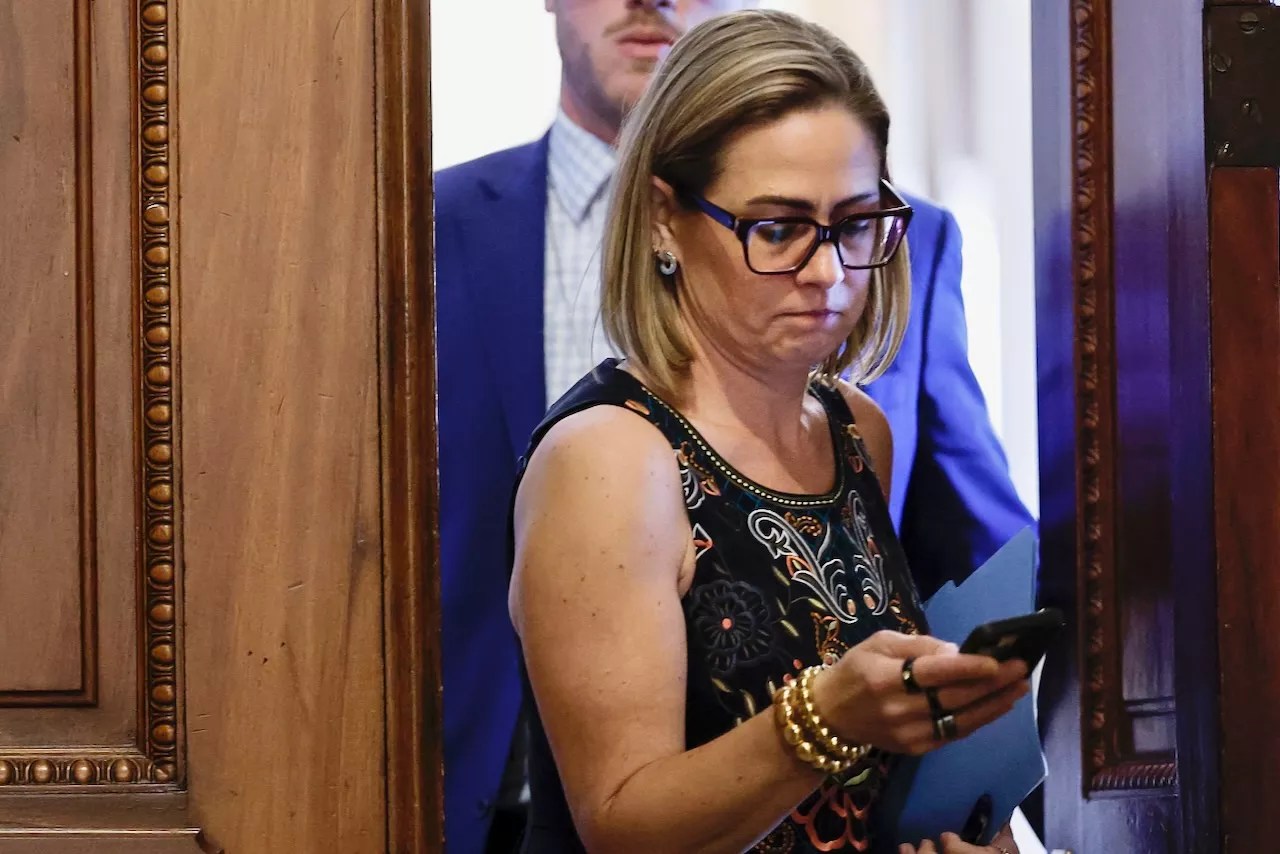
Anna Moneymaker / Getty Images

Audio By Carbonatix
You know the feeling: You answer a mysterious number and say, “Hello.” A few seconds pass; you repeat, “Hello?”
Then, the automated robocall voice starts. Annoyance reigns supreme. One Arizona woman, Jennifer Durham, decided to do something about it.
On Oct. 31, Durham filed a class-action lawsuit against Sen. Kyrsten Sinema’s campaign committee for allegedly bombarding her with robocalls over a four-year period. Durham wanted $300,000 in damages.
The lawsuit alleged that the automated calls to Durham’s cell phone were made without her consent, which violates the Telephone Consumer Protection Act. According to the TCPA, political campaign-related robocalls are exempt from express consent in the case of landline phones. Cell phones and some text messages are considered protected under the act.
But Sinema’s camp was able to thread the needle on some very specific loopholes, which enabled her to “embark on an unsolicited campaign of harassment by phone,” as the suit alleged.
Sinema’s camp claimed that the phone calls were not campaign-related and instead made in Sinema’s official capacity as a senator. That gives her “sovereign immunity,” meaning the law doesn’t apply to her or other public officials in this instance.
The three robocalls listed in the lawsuit all advertised a telephone town hall with Sinema and did not appear to contain political campaign-related material.
“Hi, it’s Senator Kyrsten Sinema. I am sorry I missed you. I wanted to invite you to a live telephone town hall about issues impacting the economy in Arizona. For more information, visit sinema.senate.gov,” said one of the phone calls listed in the suit.
A Maricopa County Superior Court judge agreed that the calls didn’t violate the law and dismissed the case against the campaign on Nov. 17.
A similar case was heard in the 9th U.S. Circuit Court of Appeals in May. In that case, the presiding judge determined that “the TCPA does not apply to robocalls made by federal legislators conducting official government business, including organizing tele-town halls.” The 9th Circuit includes Arizona.
Durham declined to speak with Phoenix New Times about the case.
New Times asked both the Sinema campaign and Sinema’s Senate office about the robocalls. Both attempts were fruitless.
Sinema’s communications director, Hannah Hurley, and press secretary, Pablo Sierra-Carmona, also declined to answer questions about how effective the robocall strategy is, or whether or not Sinema’s office instructed whoever it paid to make the robocalls to do so with express consent.
The Sinema campaign continues to fundraise despite the fact that Sinema hasn’t publicly announced a decision about running for reelection.